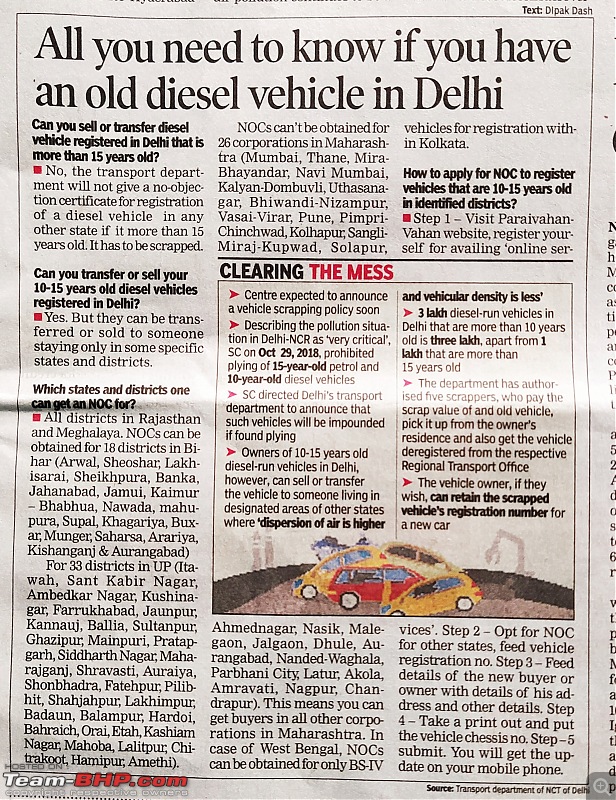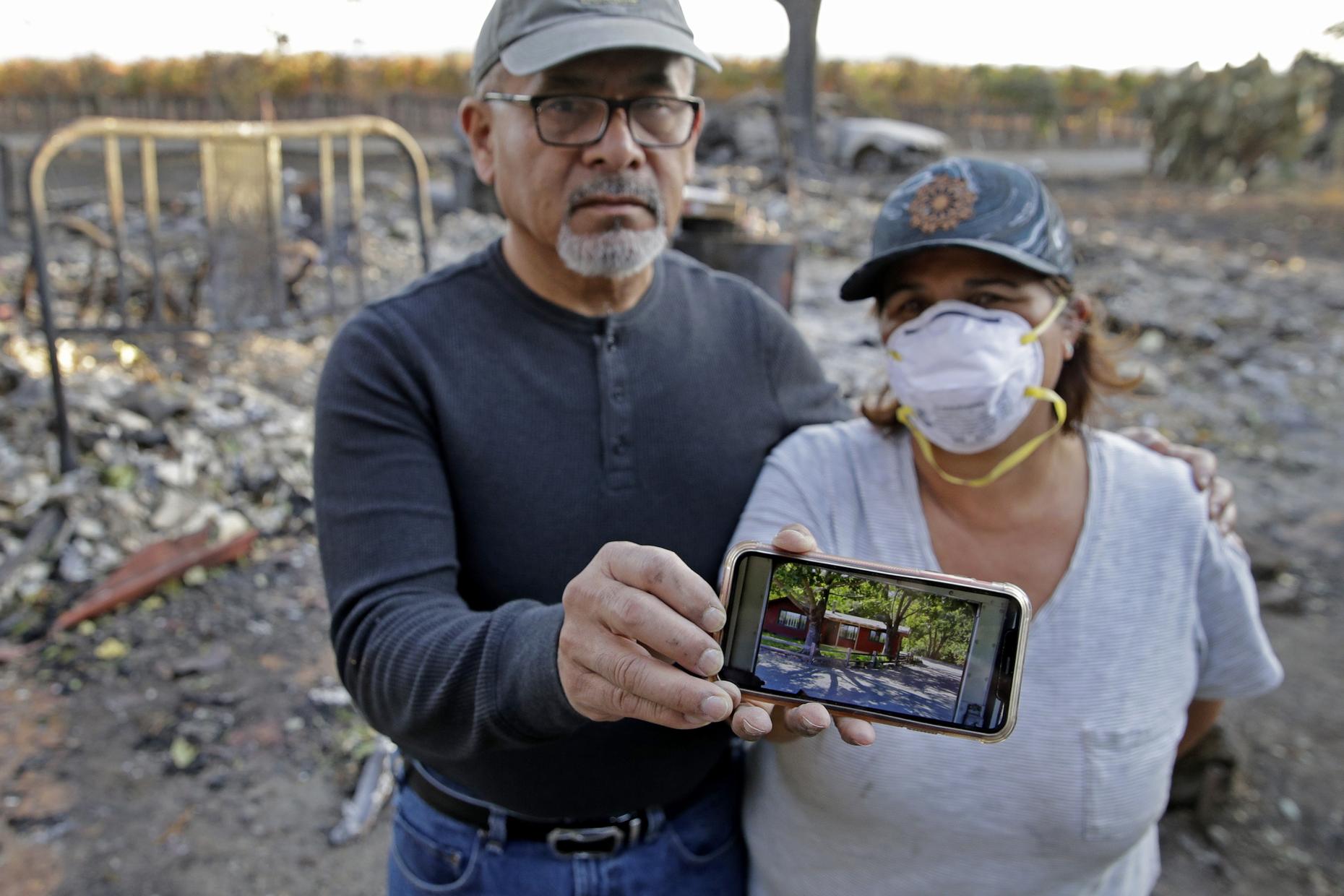Old Petrol Car Bans: Learning From Delhi's Experience

Table of Contents
Delhi's Old Petrol Car Ban: Implementation and Challenges
The Rationale Behind the Ban:
Delhi's alarming air pollution levels, consistently exceeding safe limits set by the World Health Organization (WHO), prompted the need for drastic measures. Vehicular emissions, particularly from older petrol cars, contribute significantly to this problem. These older vehicles release high levels of harmful pollutants, including particulate matter (PM2.5 and PM10), nitrogen oxides (NOx), and carbon monoxide (CO), directly impacting respiratory health and overall air quality. Studies have linked Delhi's poor air quality to a significant increase in respiratory illnesses, cardiovascular diseases, and even premature deaths.
- Specific Regulations: The ban targeted vehicles older than a certain age, varying over time, with penalties for non-compliance including hefty fines and vehicle impoundment. The specific age limits and enforcement mechanisms were adjusted as the program evolved.
Challenges Faced During Implementation:
Implementing the old petrol car ban in Delhi presented numerous logistical and social challenges. Enforcing the ban across a city as large and densely populated as Delhi proved difficult, requiring significant resources and manpower. Public resistance stemmed from concerns about the lack of readily available and affordable alternatives, particularly for those who relied on their older vehicles for daily commutes and livelihoods.
- Implementation Issues:
- Lack of adequate public transport: Many citizens lacked access to reliable and efficient public transportation, leading to continued reliance on private vehicles, including older ones.
- Difficulties in vehicle scrapping: The process of scrapping older vehicles and ensuring environmentally sound disposal was often inefficient and complicated.
- Socio-economic impact: The ban disproportionately affected low-income individuals who owned older vehicles and could not afford replacements.
Environmental Impact of the Ban: Successes and Shortcomings
Positive Outcomes:
While challenges existed, the ban did yield positive environmental outcomes. Post-ban, studies indicated a noticeable reduction in certain pollutants within designated zones. Improvements were particularly evident in PM2.5 levels, a key indicator of air quality. This resulted in a measurable improvement in public health, with a decrease in hospital admissions for respiratory illnesses reported in some areas.
- Quantifiable Improvements:
- Significant reduction in PM2.5 levels (cite specific data from relevant studies).
- Measurable decrease in NOx emissions (cite specific data from relevant studies).
- Improved air quality index (AQI) scores in certain areas.
Areas for Improvement:
Despite the positive impacts, the ban alone did not completely resolve Delhi's air pollution problem. It underscored the need for a more holistic approach. The ban's impact was localized, and improvements were not uniform across the city. Other sources of pollution, such as industrial emissions and construction activities, continued to contribute significantly to poor air quality.
- Suggestions for Improvements:
- Investment in robust public transport: Expanding and improving metro rail networks, bus services, and cycling infrastructure is crucial.
- Stricter emission standards for new vehicles: Enforcing stricter regulations on new vehicles entering the market is essential to curb pollution from newer cars.
- Incentivizing electric vehicles: Offering financial incentives and subsidies to encourage the adoption of electric vehicles can accelerate the transition to cleaner transportation.
Lessons Learned and Best Practices for Other Cities
Key Takeaways from Delhi's Experience:
Delhi's experience with old petrol car bans offers valuable lessons for other cities considering similar policies. While the ban demonstrably improved air quality in certain areas, its success was limited by its failure to address the larger issue of comprehensive air quality management. Public consultation and engagement are crucial for successful implementation, mitigating public resistance and ensuring equitable impact.
- Recommendations for Other Cities:
- Phased implementation: A gradual phase-out of older vehicles allows for better adaptation and minimizes the social and economic impact.
- Robust public transportation alternatives: Prioritize the expansion of public transport systems before enforcing strict bans.
- Comprehensive public awareness campaigns: Educate citizens about the benefits of the ban and the importance of cleaner transportation options.
The Importance of Comprehensive Strategies:
Effective air pollution control requires an integrated approach that goes beyond simply banning old petrol cars. This includes improving public transportation, enforcing stricter emission standards for all vehicles, addressing industrial emissions, and promoting sustainable urban planning. Technological advancements, such as electric vehicles and cleaner fuel sources, are also critical components of a long-term solution.
- Examples of Successful Integrated Strategies: (Cite examples from other cities that have implemented comprehensive strategies.)
Conclusion:
Delhi's experience with old petrol car bans demonstrates that while such measures can contribute to improved air quality, they are most effective when implemented as part of a broader, integrated strategy. Simply banning old petrol cars is insufficient; a holistic approach addressing all sources of pollution and providing viable alternatives is crucial. Learning from both the successes and failures of Delhi's experience is essential for cities worldwide facing similar air quality challenges. We must move beyond simply considering "old petrol car bans" and advocate for comprehensive policies that promote cleaner transportation alternatives, stricter emission standards, and sustainable urban planning. Support initiatives that reduce the reliance on older, polluting vehicles and pave the way for a healthier environment for all.

Featured Posts
-
 2025 4 22
Apr 25, 2025
2025 4 22
Apr 25, 2025 -
 Manchester Hosts Eurovision The Essential Information
Apr 25, 2025
Manchester Hosts Eurovision The Essential Information
Apr 25, 2025 -
 Stagecoach 2025 Festival How To Watch The Livestream
Apr 25, 2025
Stagecoach 2025 Festival How To Watch The Livestream
Apr 25, 2025 -
 Maquiagem Em Aquarela A Tendencia Mais Sonhadora Do Momento
Apr 25, 2025
Maquiagem Em Aquarela A Tendencia Mais Sonhadora Do Momento
Apr 25, 2025 -
 La Fire Victims Face Housing Crisis Amid Landlord Price Gouging Claims
Apr 25, 2025
La Fire Victims Face Housing Crisis Amid Landlord Price Gouging Claims
Apr 25, 2025
